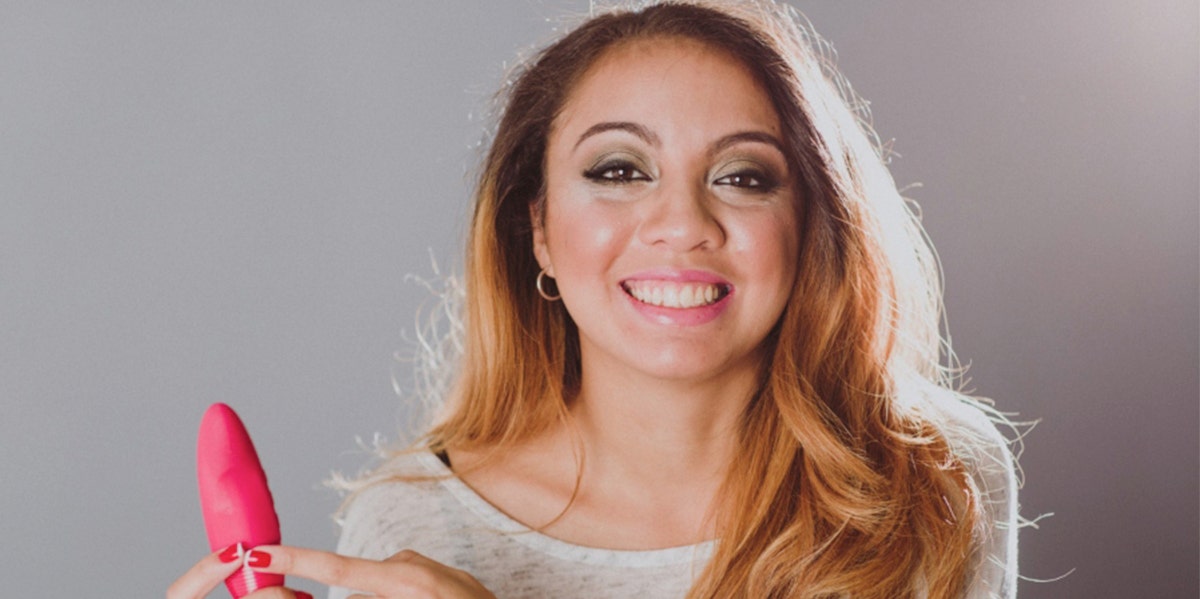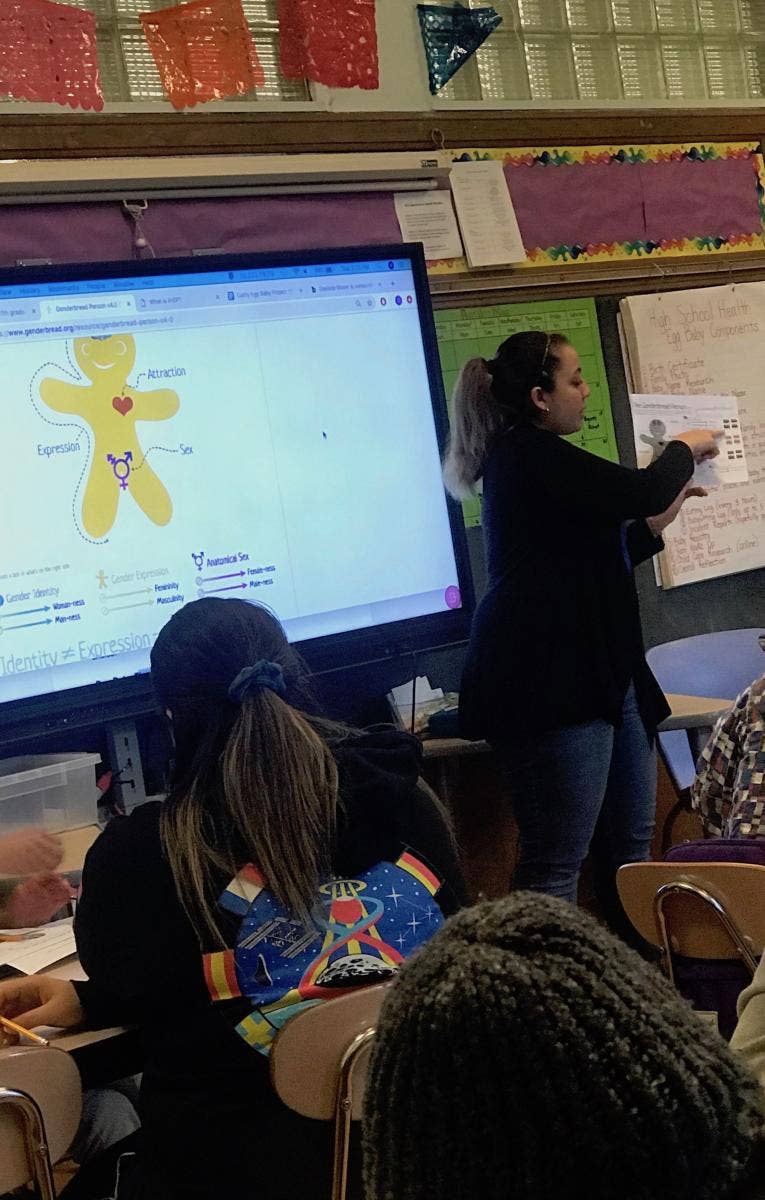My Sexist Catholic Upbringing Is The Reason I Became A Latinx Sex Educator
My parents were very religious Catholics who believed that I should not have sex until marriage.
 Courtesy of the Author
Courtesy of the Author People think being a sex educator is easy and fun. It is fun but easy is not exactly the word I’d use.
Sex educators have a responsibility to the community to deliver medically accurate, comprehensive, and inclusive sex education when they’re able, because a lot of times, schools don’t provide that.
I went to a public high school in the South Bronx in New York City, where there was no sex education at all. In fact, sex education was the least of everyone’s worries. The school was so underfunded and under-resourced that it could barely afford new textbooks or afford to take students on trips.
The reality is, the Bronx has a history of being redlined and segregated, causing the community to become very under-resourced and underserved. So sex education and access to reproductive health services were very scarce.
On top of this, the teachers were not diverse at all. I went to a school that was filled with primarily Black and Brown students, but the teachers were all white. It was rare to see a Black or Brown teacher, which caused a lot of tension within the student-teacher relationships.
That being said, sex education for many youths in the Bronx was left up to the parents, which can be a hit or miss.
For me personally, it was very much a miss.
As a young Latina, I had very conservative parents who did not want to talk to me about sex.
They were very religious Catholics who believed that I should not have sex until marriage. It was very heterosexist as they assumed that I would be with a man in my future. It was also very sexist because they assumed that I should stay “pure” and “virginal” (I’m sure if I were a man, my parents would not have expected me to stay “pure” and “virginal.")
It wasn’t until I got older that I learned about the gender roles within the Latinx culture.
For men, they were expected to be machismo. Machismo is masculine pride, or in feminist terms, it is toxic masculinity culture. It’s the expectation that Latinos “be a man” and not show emotion in public. It’s the expectation that Latinos are hypersexual and cannot be controlled because they are como ninos (like little boys).
Later on, researchers such as Evelyn Stevens dissected gender roles for Latinas as well. This was called Marianismo, the expectation that Latinas stay “pure” like the Virgin Mary and stay obedient to their husbands. It’s rooted in Christianity and Catholicism due to years of colonization in Latin America.
Because of my personal experiences not receiving sex education, and because of oppressive gender role expectations put on me, I became passionate about sex education and reproductive health and became a sex educator myself.
I wanted to destigmatize sex because the stigma was only hurting our communities. Sexual health is a part of the human experience, and I wanted to help lead my community to the acceptance of this so we could empower ourselves to live healthy and safe lives.
I started out as a peer health educator in college educating Black and Brown high school students in the Bronx. It was great connecting to youth that looked like me.
However, what worried me was the lack of diversity in health educators. White students were being sent to schools with high populations of Black and Brown youth and no experience or personal connections to these youth. Some of these health educators were coming from well-off families and Ivy League schools. There was very much a white savior complex occurring.
Knowing the history of birth control experimentation on women of color, and the history of sterilization of Puerto Rican women in the 1960’s, (where one-third of the women on the island were sterilized without consent throughout the eugenics movement) it’s an understatement to say there are trust issues towards health care educators and providers. That’s why it’s important to have more BIPOC folks as sex educators.
This is not to say white folks can’t be sex educators, but if a majority of sex educators are white, what does that signal to young Black and Brown youth when the very people teaching sex education are the folks that benefit from historical racism?
I’ve been working with youth for 6 years now, mostly in the capacity of a sex educator.

Photo of the author teaching a sex education class.
As BIPOC folks, we know best what our communities need.
A lot of sex education that’s given to Black and Brown communities is HIV prevention-based, which can be very shame-y at times and even reinforce the stigma behind STI’s. There’s a way to teach young people to be safe without the shame and stigma behind it all.
We also know that we have to move further away from just giving “101” information. The orgasm gap is real and in order to close that, we need to talk about pleasure. And not just pleasure for cis men and women, but pleasure for queer, nonbinary, and transgender folks as well.
Lastly, sex education should also include conversations related to the -isms and phobias (racism, sexism, homophobia, transphobia, etc.) You can’t talk about pleasure in the community if that community is constantly experiencing police brutality, sexual assault, or deportation (and more). Sex education is tied to so many social justice issues, so sex educators should be having conversations tying in all of these things.
Having more BIPOC sex educators in the field widens the breadth of knowledge sex education will have to offer. Sex education will be more accessible when more sex educators who speak different languages offer it as well. It will especially allow youth to receive information better since they’ll be able to relate to their educators more.
Being a sex educator is great, but it’s first and foremost a responsibility to our communities.
Angelique Beluso is a sex educator and writer who covers feminism, pop culture and relationship topics. Follow her @AngeliqueBeluso.

